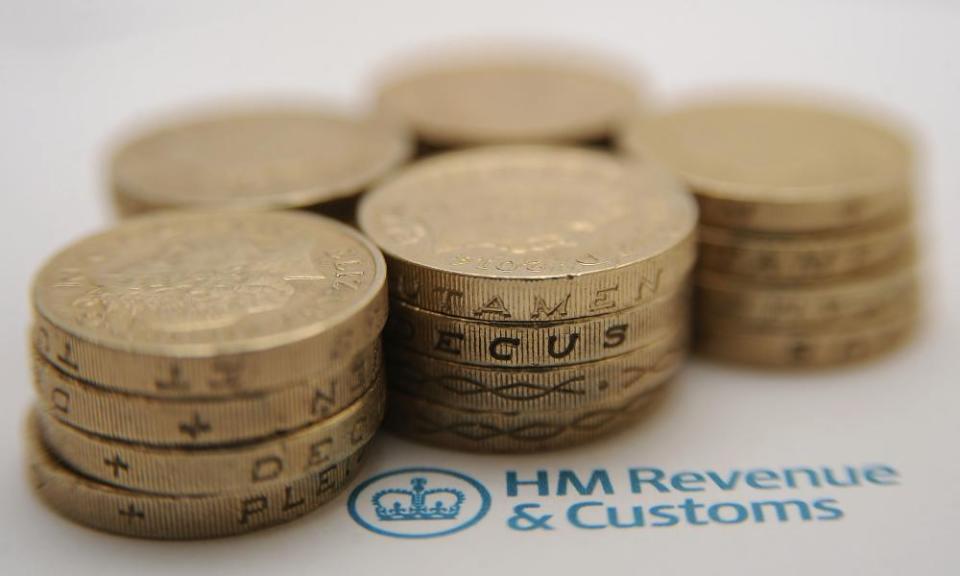The Tories promise to be tough on tax evasion. Where’s the evidence? | Prem Sikka

All political parties claim to be tough on tax avoidance, but a comparison between the commitments in the Labour and the Conservative manifestos is stark.
Labour has published a 10-page booklet devoted to policies for tackling tax avoidance by wealthy individuals and corporations. It lists some of the loopholes that the party would tackle immediately and the likely financial benefits that would result. Labour has committed itself to providing an additional £200m a year to HMRC to combat organised tax avoidance and provides a cost-benefit analysis to support its proposed investment.
In contrast, the Conservative manifesto has just eight lines under the heading “Stopping Tax Evasion”. The meaty part reads: “We will legislate for tougher regulation of tax advisory firms. We will take a more proactive approach to transparency and misuse of trusts. We will improve HMRC’s capabilities to stamp down on smuggling, including by improving our policing of the border as we leave the European Union. We will also take further measures to reduce online fraud in Value Added Tax.” That is it. There are no costings; no list of any specific steps; no explanation of how HMRC’s capabilities are to be improved and no reflections on previous policy failures.
To develop good public policy, governments need to reflect on the economics and morality of their actions. But that is not the case in relation to the statements in the Conservative manifesto. It wants “tougher regulation of tax advisory firms” without any indication of what this means. Just look at what the government has actually done.
The big four accountancy firms (PwC, Ernst & Young, Deloitte and KPMG) are key players in the global tax avoidance industry. Their trade deprives governments of much needed public revenues for investment in social infrastructure and should to be shackled by robust action. In the UK, the House of Commons public accounts committee (PAC) criticised their role in crafting and marketing dubious avoidance schemes in 2012, January 2013, April 2013, June 2013 and January 2015. The January 2015 report came after the publication of leaked documents detailing some of the tax advice given by PwC to clients through Luxembourg (it became known as LuxLeaks). The very strong PAC reports were not followed by any government investigation or prosecutions.
On occasion, HMRC has challenged tax avoidance schemes marketed by big accountancy firms and judges have declared those schemes to be unlawful. Strong court judgments have not been followed by any investigations, prosecutions or fines. Not a single accountancy firm has ever been disciplined by any professional body for peddling unlawful schemes. The Conservative manifesto does not explain the government’s inaction.
The manifesto claims it will improve “HMRC’s capabilities” to tackle tax avoidance. Actually the government has systematically weakened HMRC. Last year, I co-authored a report on the operations of HMRC. It found that it has been colonised by the tax avoidance industry and major corporations involved in tax avoidance. They have even been allowed to write UK tax laws. Unsurprisingly, there are few, if any, test cases against giant corporations and little action against big accountancy firms.
HMRC has been systematically starved of resources and its budget has been reduced in real terms. Investigation of tax avoidance is labour-intensive, but headcount at HMRC has declined from 73,695 in 2010 to 59,857 in 2016. The government’s plan is to reduce HMRC staff to below 50,000, and possibly as low as 41,000. Complex corporate structures are key mechanisms for tax avoidance. This requires specialists who can unravel transfer-pricing techniques used to shift profits through spurious management, royalty, intra-group interest and other charges. In February 2016, HMRC had only 81 transfer-pricing specialists. An investigation into just one major company used up between 10 and 30 specialists, with an average case taking up to 22 months to conclude. This leaves little time for others. In contrast, the big four accounting firms alone had four times as many specialists.
Between 2010 and 2015, there were only 11 prosecutions in relation to offshore tax evasion. This total includes just one from the voluminous inside information provided by whistleblower Hervé Daniel Marcel Falciani (a former HSBC employee) to HMRC, showing that HSBC may have aided 3,600 individuals to dodge taxes. In January 2016, HMRC told the PAC that it had quietly abandoned its criminal investigation into the role of HSBC in alleged illegal activities.
The Conservative party’s approach to tax avoidance should be a matter of deep public concern – its absence in the manifesto a grave dereliction of duty. Maybe the Tories are so certain that they are going to win the election that they can’t be bothered to provide any detail or engage with citizens. If so, there is little hope of mounting any effective check on organised tax avoidance.

 Yahoo Finance
Yahoo Finance 